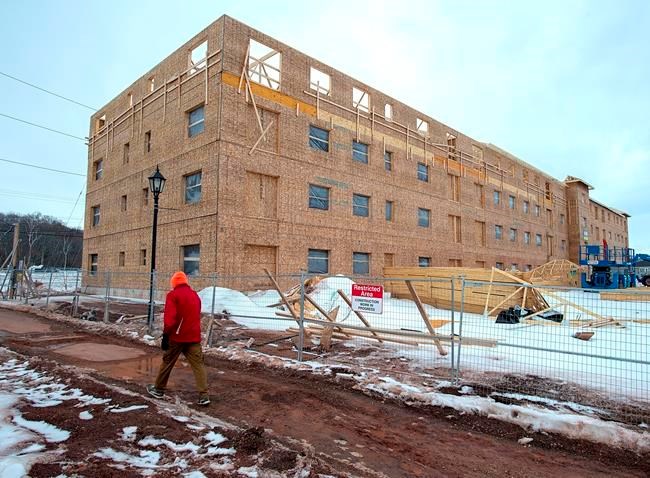CHARLOTTETOWN — A lack of affordable housing on Prince Edward Island has some questioning whether the province is running out of room for those who want to call it home, making dwindling real estate one of the major issues in the upcoming election.
Party leaders campaigning ahead of the April 3 vote have promised to tackle the lack of housing if they form the next government.
A December news release from Statistics Canada said P.E.I.'s rate of retaining immigrants five years after they arrive had jumped to 28 per cent in 2015 from 15.6 per cent in 2010, but it was still the worst among the provinces.
The population began to ramp up in 2015 but there was a dip in housing construction just before that, said Jim Sentance, an economics professor at the University of Prince Edward Island.
"New housing starts just dwindled down to a few hundred a year," he said.
A doctor coming into the province might not find it hard to find a house but someone in the lower- or middle-income group would, he said, with the lack of affordable housing a "fairly major issue" in the election.
"I think where the squeeze is on, I would suggest is more at the lower end," he said. "So more affordable housing."
Lack of housing brings with it other problems, such as difficulty in attracting and retaining people and students, said Cory Pater from the group P.E.I. Fight for Affordable Housing.
"A lot of people who come here move away almost immediately," Pater said.
A one-bedroom apartment in Charlottetown costs about $1,200 a month, he said. Rents increased about eight per cent from 2021 to 2022.
Green party Leader Peter Bevan-Baker said the lack of sufficient housing has made it difficult to attract workers in health care, construction and other fields.
He blames a lack of government planning. The reliance on the private sector to build more housing on P.E.I. is "misplaced," he said.
"We should have anticipated this and done something about it," he said in an interview. "We could have done much better when it comes to investing public dollars in building housing."
Sentance suggested the government should ease up a bit on bringing more people into the province until more units can be built.
An August news release from the P.E.I. government said the province's population is expected to grow about 13 per cent at a slow rate or about 41 per cent in a high-growth scenario over the next 20 years. Canada’s population is projected to grow between 12 and 37 per cent over the same period.
Sentance said the government could afford to slow down the rate of population growth.
"At some point you have to wonder what's more important, growing the population or fixing the housing problem?"
Pater said he does not think a temporary easing up on immigration into the province would relieve much stress from the housing market because it’s a problem that grew slowly and will take time to resolve.
In the short-term, he said the government could buy up housing units, hotels or other buildings to alleviate some of the pressure. His group is advocating for more public and co-operative housing that would keep rents low.
Progressive Conservative Party Leader Dennis King was not available for an interview.
A news release Wednesday from his campaign promised to launch a rent-to-own program that would help people buy a house with government financial options after renting for about two years.
Sharon Cameron, leader of the Liberal party, was also not available for an interview.
Bevan-Baker said a Green government would create a rent registry that would show what the previous tenant was paying and how much is being charged by the landlord when the property is leased out again.
He said rent caps are one way of controlling and regulating the marketplace, but they have to be done in tandem with a registry.
"Housing is both a basic human right and an investment opportunity," he said. "Government has the responsibility to ensure that the rights and needs of the more vulnerable community are properly protected."
This report by The Canadian Press was first published March 17, 2023.
— By Hina Alam in Fredericton
The Canadian Press
